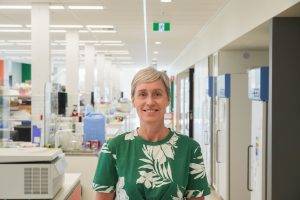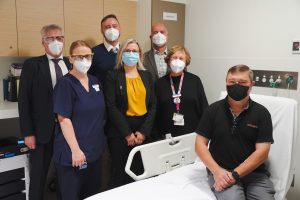In a first-of-its-kind trial, researchers at the Royal Adelaide Hospital (RAH) are developing a new cell therapy that could prevent or delay the onset of type 1 diabetes.
There are nearly 140,000 Australians currently living with type 1 diabetes, and approximately 10,050 in South Australia, many of whom are diagnosed as children.
Complications of the condition can include heart and kidney disease, stroke, amputations, vision loss and depression.
Jacqui Scaffidi, who currently works in the Central and Northern Adelaide Renal and Transplantation Services (CNARTS) with the support of Professor Toby Coates and a team of researchers, have this month received a 2024 Diabetes Australia Research Program grant to progress their study to the next phase.
“Currently there is no cure for type 1 diabetes, so an effective therapy to delay or prevent type 1 diabetes is critical.
“Through our study, our aim to regulate these new cells, which can then potentially prolong the time it takes to develop type 1 diabetes, ultimately helping to prevent patients from needing insulin therapy,” said Jacqui.
Five RAH patients have taken part in the new study, in which blood was taken to generate new CAR-T Reg cells. These new cells have the potential to suppress the autoimmune response, which attacks the pancreas, causing type 1 diabetes.
Type 1 diabetes is a chronic condition and occurs when the body’s immune system attacks the insulin producing cells in the pancreas. Insulin is a hormone the body uses to allow sugar (glucose) to enter cells to produce energy.
By harvesting a person’s own CAR-T cells, this research aims to re-program their own cells to supress the auto-immune process that causes type 1 diabetes. If successful, the person would be able to receive their own cells to fight their diabetes as a unique cell therapy approach to the disease.
Diabetes Australia is the national organisation supporting all people living with or at risk of diabetes. They have been funding diabetes research for more than 30 years through the Diabetes Australia Research Program (DARP).



